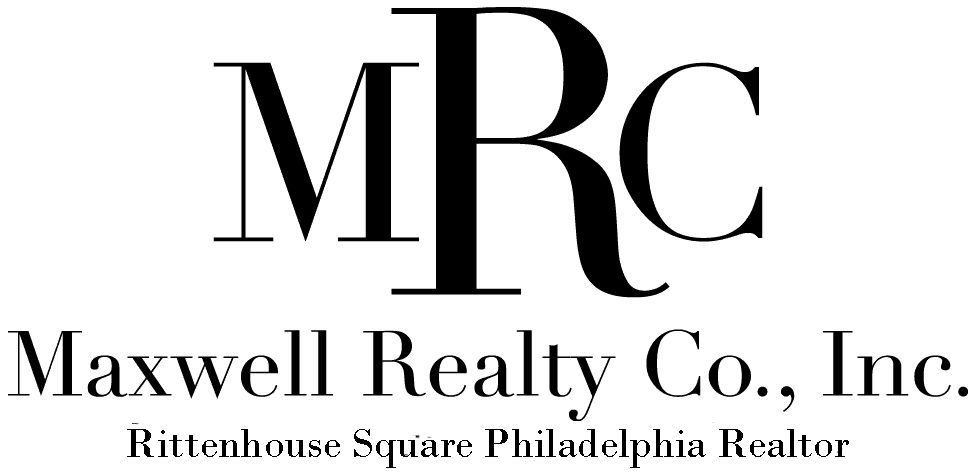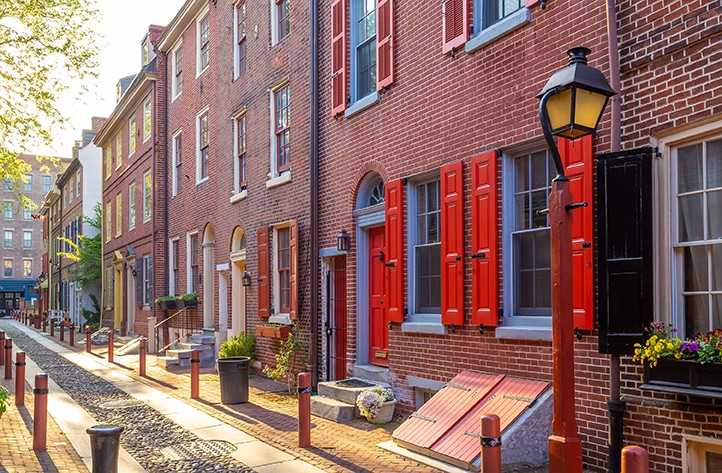If you’re looking to find a new home in Philadelphia, you’ll likely find yourself asking this question: “Should I rent or should I buy?” After all, there are plenty of reasons why renting might be better than buying.
Renting can give you more flexibility. For example, if you need to move for a job, it’s easier to move if you’re renting an apartment. In addition, if you don’t think your finances will allow for homeownership anytime soon, then renting gives you that option without any long-term financial commitment.
With so many factors to consider, it’s hard to know for sure whether renting or buying is the better option in Philadelphia. Weighing the pros and cons of each can help you make an informed decision. Here is what the Philadelphia real estate agent at Maxwell Realty has to say about renting versus buying property in Philly.
What are the Pros and Cons of Renting a Home in Philadelphia?
Renting is cheaper than buying. This can be especially true if you rent an apartment with another person, because two people pay less per month than one person in a house or condo. It’s also easier to break a lease than it is to sell a home. If you’re not ready to commit long-term, or if your life circumstances change and you’d like the option of moving at short notice, renting is probably the better choice for you.
Here are a few other reasons why renting a condo in Philadelphia may be better for you in the long run than buying a home.
There is Less Financial Risk to Renting an Apartment in Philadelphia
If you are unsure of your future plans, renting is a better option for you. Renting does not require long-term commitments, which allows you to change your mind or make decisions quickly if necessary.
Renting is also a better option if you are unsure of your financial situation. Since renting costs are usually lower than buying, renters can save money and invest in other ways while they wait to see how things pan out with their finances.
If your credit is less than ideal, it’s better to rent because getting a mortgage with a low credit score can be difficult. You may be facing a higher interest rate, or the bank may just deny your application all together. If this is the case, you might want to think about renting while you work on improving your credit so you’ll be prepared to buy a home when the time comes.
If you have a job that requires a lot of travel or if you work from home, renting may be better for you. This is because buying a house means committing to being in one place for years, while renting allows you to move around more freely after the lease has expired.
Less Responsibility for Maintenance and Repairs
Renting comes with a lot less responsibility than buying a home in Philadelphia. You don’t have to worry about maintenance, unexpected repairs, or other issues that come with owning a property. If you move out of the area, there are no financial consequences to leaving the apartment beyond the cost of moving to a new place.
If you’re looking for something that’s move-in ready, then renting a condo or apartment might suit your needs better. Rental units come with appliances, plumbing fixtures, lighting, and all the other elements you’d expect to find in a home. You don’t have to worry about the maintenance or upkeep of the property because it’s being looked after by someone else. For example, if the sink should overflow, you can call the building manager to come and fix the problem rather than trying to figure it out on your own.
Dealing With the Landlord or Property Management
But there are risks to renting as well. For example, if your landlord decides to stop renting out their property, you may find a vacancy notice on your door when you least expect it. On top of that, if the owner decides they want to sell off all their rental properties in one fell swoop (which is extremely rare), then everyone will get evicted at once—not just those who’ve been living there for less than six months.
Another risk of renting is that your landlord could decide to sell their property and find a new tenant who wants to move in. If this happens, then you might be able to negotiate with them so that you can stay—but it’s not guaranteed.
You will also be faced with restrictions on what you can do with your home. For example, if you want to paint the walls or tear out the carpet, you will first need approval from your landlord, who may deny your request. If you’re too loud, you could also be facing a warning or eviction.
Another issue is pets. In many cases, if you have a pet, you may have to pay an extra fee. On average, you could be facing up to $100 more a month on your monthly rent if you own a cat or a dog.
What are the Pros and Cons of Buying a Home in Philadelphia?
If you plan on staying in Philadelphia for more than five years, buying a condo in Philadelphia might be better than renting. This is because renting often involves short-term leases with high penalties if there’s no lease renewal option available from the landlord or property management company. For example, you could make a deal with someone who owns several properties in Philadelphia but only wants to rent them out on a month-to-month basis without any renewal options. This means they could kick you out whenever they want without giving you any warning.
There are other benefits to buying a home or condo in Philadelphia, such as:
Building Equity
One of the main reasons to consider home ownership is to build equity over time. If you have a mortgage, when the loan is paid off, you are left with equity in your home. The value of this equity can be used for other purposes, such as buying another house or cashing out to build wealth.
When you make a bigger down payment when purchasing a home, you have more equity and more control over your home. But how much should you put down? The rule of thumb is 20 percent if you can, but this can change based on your goals and financial situation. If you are planning on living in Philadelphia for less than five years, it may be better to go with a smaller down payment so that you don’t tie up too much capital in the house during that time period.
With a mortgage, you also have the option to pay extra each month in order to pay off your loan faster. This can be extremely beneficial, as it will leave you with a smaller amount of interest to pay over time.
There are also many different types of loans that you can get to purchase a home. The first thing to do is decide how much money you want to spend on your mortgage. This will determine what type of loan you qualify for and how much interest you pay throughout its life.
Enjoying Tax Advantages
Buying a home in Philadelphia has a number of tax advantages. One of the biggest ones is that you can deduct your mortgage interest and property taxes from your income. This reduces your taxable income, which means you pay less in federal and state taxes.
In addition, if you use a mortgage points calculator to determine how much it will cost you to buy a home with an adjustable rate, this cost will also qualify for deductions after the first year (as long as the points were not prepaid).
Property Investment can Grow in Value
One of the most important aspects of buying a home is calculating its value. Many people do not bother to do this and they often find out at closing that they overpaid for their home. In order to calculate the value of your home, you will need to know the purchase price, any additional fees associated with purchasing or selling your property (i.e., title insurance), monthly mortgage payments and ongoing maintenance costs. When you hire a real estate agent from Maxwell Realty, we can help get an idea of how much your home is worth.
After calculating these numbers it should be clear if you are overpaying for your property or if you are getting a good deal on it. If so—congratulations! You have found yourself a bargain. But if not…well then maybe it’s time for some serious soul searching about whether renting is better than buying in Philadelphia after all.
If you are thinking of buying a home, it is important to find out what the current market value of your property is. This will help prevent overpaying for your property and also allow you to use this information when negotiating with sellers about price. There are many different ways to calculate the value of a home; however, below are two simple methods that can be used by anyone who wants to get an idea of what their house might be worth in today’s real estate market.
The Expense of Home Ownership
If you’re looking for a long-term investment, buying a home or condo in Philadelphia could benefit you as well. As with any investment, it’s important to do your research and get all of the facts before making an offer on a property. You’ll also want to figure out what kind of monthly payments are manageable for your budget—and whether or not this purchase is going to be worth it in the long run. However, if you’re willing to put in some work and make some sacrifices, there are many ways that buying a home can benefit you financially.
First things first: when considering whether or not to buy a home, think about how much time and money have been spent on fixing up properties that have already been sold once before—often at a higher price than they were originally purchased for. This process involves doing everything from plumbing repairs (which can be expensive) all the way through landscaping work outside so that everything looks fresh again when someone walks through their front door after moving into their dream home. In addition to these costs associated with purchasing homes in Philadelphia, there may also be other expenses involved such as property taxes, unexpected repairs, etc.
Renting vs. Buying: Which is Better?
If you’re looking to buy in the city, start by finding out how much your mortgage payments would be. If it’s more than $2,000 per month, then buying a condo or home probably isn’t right for you at this time. You’ll want to stay on top of your budget, work on your credit, and start saving for the home of your dreams!
If buying is still an option, take some time to speak with a Philadelphia realtor at Maxwell Realty before making any decisions.
Looking for a New Home in Philly? Maxwell Realty Can Help!
So, what’s the verdict? Is it better to rent or buy? If you are saving up for a down payment on a house in Philadelphia, then renting is definitely cheaper than buying and has less responsibility. However, if you want to build up your financial portfolio, or just want a space to call your own, then buying a property makes more sense than renting an apartment. Ultimately, whether you should buy or rent depends on your budget, your lifestyle and what you envision your future holds.
Maxwell Realty can help! Contact our Philadelphia realtor today to get the home buying process started.

